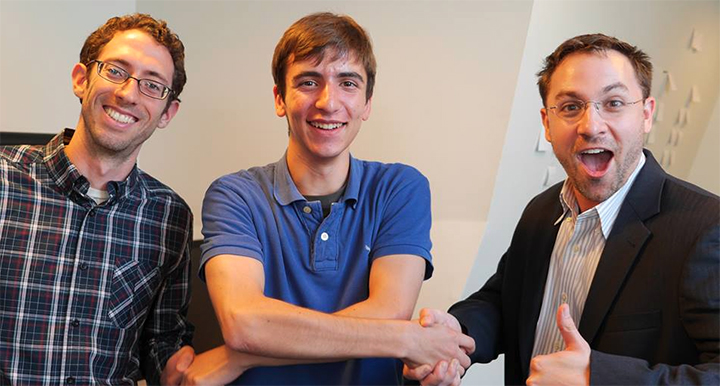We make no secret of it at TechChange: Our staff are huge fans of Coursera. This innovative organization absolutely deserved to win TechCrunch’s Best New Startup of 2012 and are the gold standard in the growing field of Massive Open Online Courses (MOOCs). And so I was really looking forward to taking the Fundamentals of Online Education: Planning and Application course. Which is why I was a bit taken aback to receive this email on February 2nd.

I won’t go into this one course’s many problems here, but if you’re interested, Scott Jaschik wrote a superb article for Inside Higher Ed: MOOC Mess. There’s also a detailed breakdown of what went wrong from the student perspective on the Chewing Thistles blog: 24 hours – A long time in online learning. As providers of online learning, we wanted to capture some thoughts about this kerfuffle to see what we can learn about the field as a whole:
1) Collaborating ain’t easy. Much of the course’s criticism centered around using groups and collaboration tools like Google Spreadsheets (which has a limit of 50 simultaneous editors) for a class of 41,000 students. That’s not just a Google problem, as even the more flexible hackpad (our current favorite) has a concurrent editor limit of 250 students. But even if you could solve this problem with a technical solution, the organizational difficulty of structuring and facilitating exercises won’t go away. And that’s fine, because….
2) There are inevitable trade-offs between scale and interactivity. The great part about MOOCs is that they can easily disseminate content to tens of thousands of students — which is important since they can cost upwards of $50,000 to make due to the level of time and video production needed. But once you start to increase the group collaboration, interaction with facilitators, and more, you run up against staff constraints as well as technical constraints. And that’s tough because…
3) Quality control is hard for both content and facilitation. We like to say at TechChange that an online learning experience is really three services in one: A user-friendly online platform, interactive content, and relevant facilitation. Take away any of those pegs and the whole thing falls apart. When your platform consists of pre-recorded videos and automated tests, it’s much easier to manage at scale than when you’re facilitating group activities, which is a problem because….
4) If you’re asking for somebody’s time, it’s not free. There’s excitement about what “free” means to expanding access to education, but time isn’t free — there’s always an opportunity cost. And frankly, if you’re going to have a subject matter expert engage directly with students you’re going to eventually need to compensate that person for their time and expertise. And that’s fine, because many students will be willing to pay for that more interactive experience, which is why you need to…
5) Listen to your students, especially when they’re upset. Unlike Coursera, we do charge our students for access to courses. If you think people are upset when a free product fails, try experiencing the result when they’ve entrusted you with their hard-earned money. That feedback loop can change when universities and educators are the ones buying your classes, but students are the ones taking them. If you’re at Coursera and want to try experiencing this class from the point of view of one of your students, one article well worth reading is: How NOT to Design a MOOC: The Disaster at Coursera and How to Fix it.
Ultimately, Coursera still has a wonderful catalogue of free upcoming courses and will hopefully find a balance between quality control and student interactivity. But perhaps the most beneficial takeaway is the recognition that students and teachers are partners in the process of advancing the field of online education.
Students can always teach “experts” how to better run a course — even when everything goes as planned.
 We’re excited to join the Tech Cocktail DC Startup Showcase tomorrow evening at the headquarters of 1776. If you’re attending this Tech Cocktail DC event, you’ll hear from TechChange Founder & CEO, Nick Martin, who has just returned from his travels in Amsterdam and Nairobi.
We’re excited to join the Tech Cocktail DC Startup Showcase tomorrow evening at the headquarters of 1776. If you’re attending this Tech Cocktail DC event, you’ll hear from TechChange Founder & CEO, Nick Martin, who has just returned from his travels in Amsterdam and Nairobi.